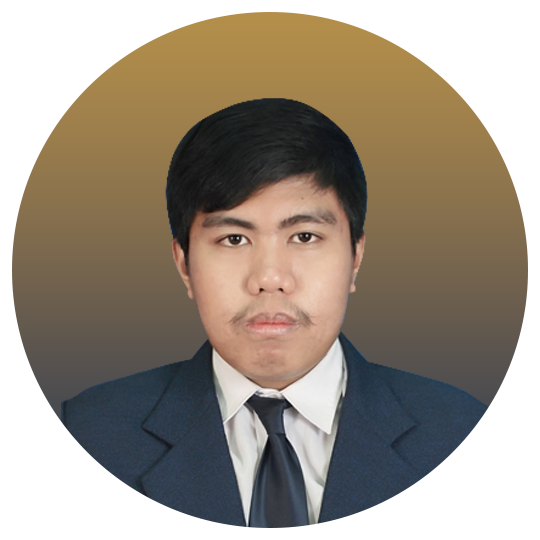
The city is always assumed to be a humanistic space because its presence encompasses the dimensions of human life with all its problems, even though the dimension of humanity in that space begins to be submerged by the relentless passage of time. This causes people to no longer be able to reflect on the corporeality they possess. They can no longer reflect on their own presence, that is, a body that has integrity in urban spaces.
Unfortunately, the body, which stores rationality and modernity, always buries humanity in urban spaces. Urban society is then no longer seen as a real body but as a symbolic one, thus shaping them like a robotic mechanism. This causes their bodies to be consumed by time and their entities folded into an artificial space.
This is what was realized by Adnan—the poet who forged his literary life in the city of Surabaya—who captures the side of life in urban Surabaya with all its busyness in the whirl of time and expanse of space. He captures this restlessness into his latest poetry book titled “The Body That Devours Itself”. This poet attempts to speak out against the condition of Surabaya, crowded with urban noise and development. This work leads to a philosophical reflection owned by Horkheimer—one of the philosophers placed as one of the pioneers of the critical school. He argued that there is a human effort to become rational, but this actually turns the rational human back into something irrational (Sindhunata, 2019:198). This phenomenon is not much different from development that ignores the environmental ecosystem, and the naturalness of nature that also equips humans themselves to survive. Moreover, it stores a phenomenon of a very individualistic social space towards each other’s busyness. From here, Adnan seems to want to present again the dimension of humanity that tries to become gods in themselves without seeing it wholly in a confined condition.
This phenomenon can be seen through the poem titled “11 Bodies in a Surabaya Room” including the poem titled “Searching for Human Body from Urban Body”, Adnan presents various urban society vocabularies that are dense such as city buses, noisy exhausts, motorcycles, train tracks, supermarkets/malls. These diction choices store the side of human life that is forcibly created by themselves as part of the advancement of civilization. Especially how the urban human body begins to lose its own humanity, trapped by the sequence of time especially in lines 23-24 of the poem as follows:
“…oh, how can I see my own head, how can I define myself…”
From this sentence, the poet begins to imagine something separated between the body and the soul or humanity that disappears due to being consumed by each individual’s ego in the dimension of space and time. Because of this, it also threatens the values of Arek Suroboyo regarding life on mutual cooperation, and it is also inscribed with the value of egalitarianism as a concept in unifying social interaction especially in this society (Hadi and Supratiningsih. 2018:398). Moreover, this value also stems from the experience of living together in a society, not from each subjective individual thought (Hadi and Supratiningsih. 2018:398). This simultaneously affirms equality towards each other in thinking without knowing any particular caste. Thus, this principle is built by Arek Suroboyo. They come from egalitarian and cooperative spaces. Not from individualistic life values.
Adnan’s poetry also presents social criticism. This is shown in one of the titles “Buying a Gallon From the Body of God”. The poem juxtaposes God as the highest degree, but it reflects the greed of humans for abundant wealth with the pretext of urban development. This is shown from the phenomenon behind the development that also harbors an act of corruption especially in the ninth stanza of this poem as follows:
“Writing a name or Corrupting, as long as check marked sitting with air conditioning, eating food taken from Mars using jets and helicopters”
moreover, the choice of diction “rolling” as a repetition of diction that frequently appears in the poem stores an image of urban human life’s greed.
Furthermore, the choice of diction “gallon” certainly has a different interpretation. If this poem only used the word “bottle”, it certainly would not store an image of something excessive. A gallon is synonymous with a large water bottle, which of course, means “more” or “wanting to be more,” indicating human life in perpetual lack. In the psychoanalytic view of Lacan, he explains that when humans are born, they will identify themselves through the real, the imaginary, and finally, the symbolic condition. The choice of diction for the gallon, as something excessive, stores a symbolic text condition of human desire (desire). This traps humans in the network of that chain of signifiers (Lacan, 1977: 54-55).
Therefore, the greed for development and the depiction of places in the poem shown in
the following verse:
“luxurious places, black suits, bulging bellies especially gallons”
certainly explains how humans in the urban environment are formed without knowing their own bodies as humans that are hard to find especially in urban environments. His verse contains cynicism towards that life.
Adnan’s poetry presents various social criticisms and reflections on the search for the body in the city of Surabaya, lost in the contained local values and the principle of mutual cooperation that begins to fade due to artificial community life. Thus, these poems then question again how the body is searched for as an autonomous human.
Adnan’s poetry stores a satire embedded in the network of signs in his verses. It is a reflection and re-questioning of the urban community body that has been consumed by the whirl of time and folded into the expanse of space in urban community activities.

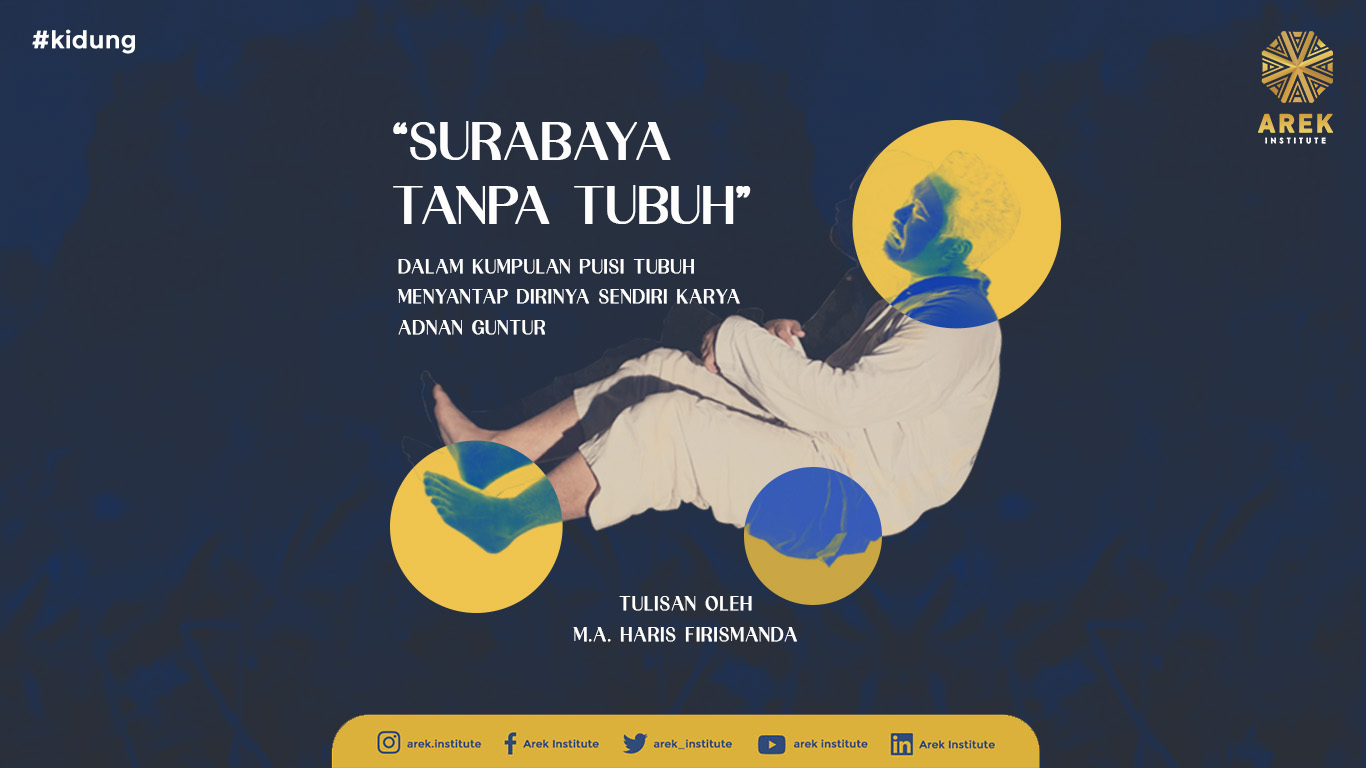

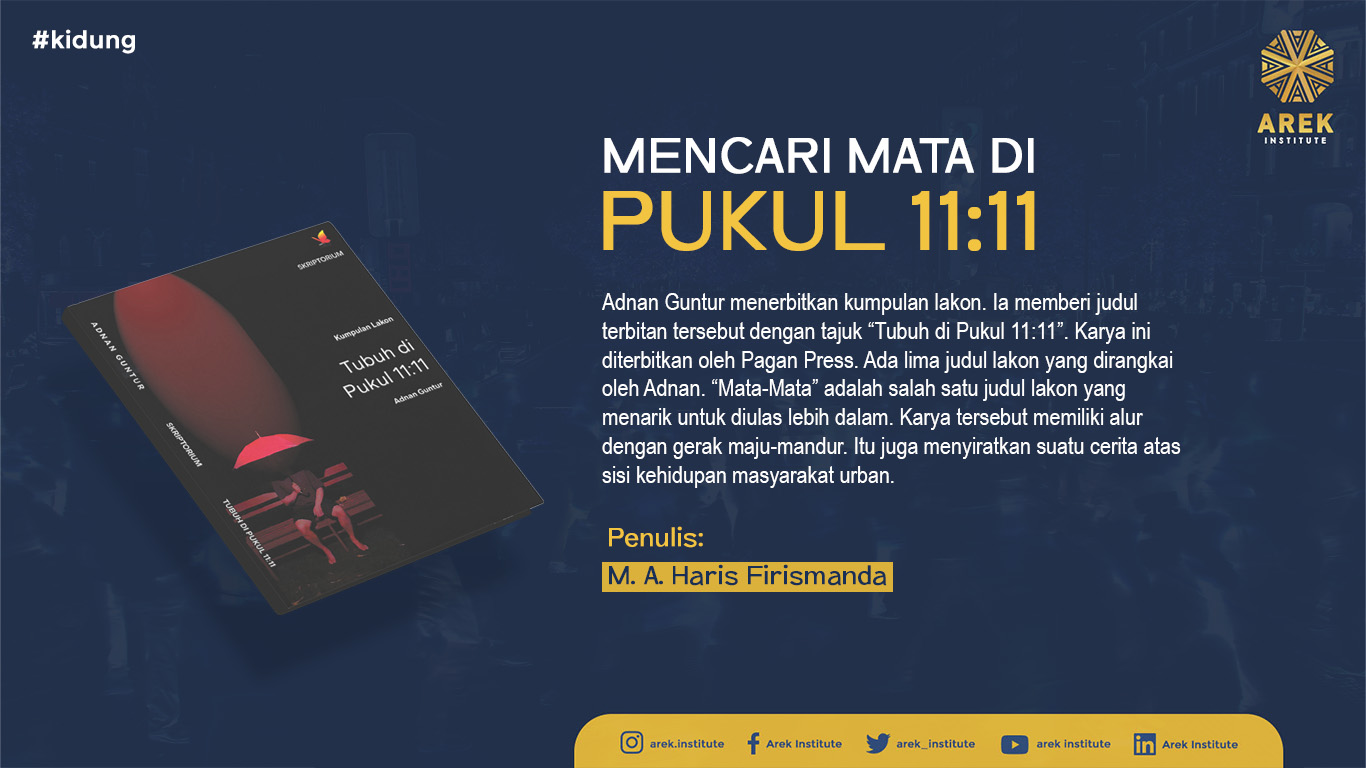
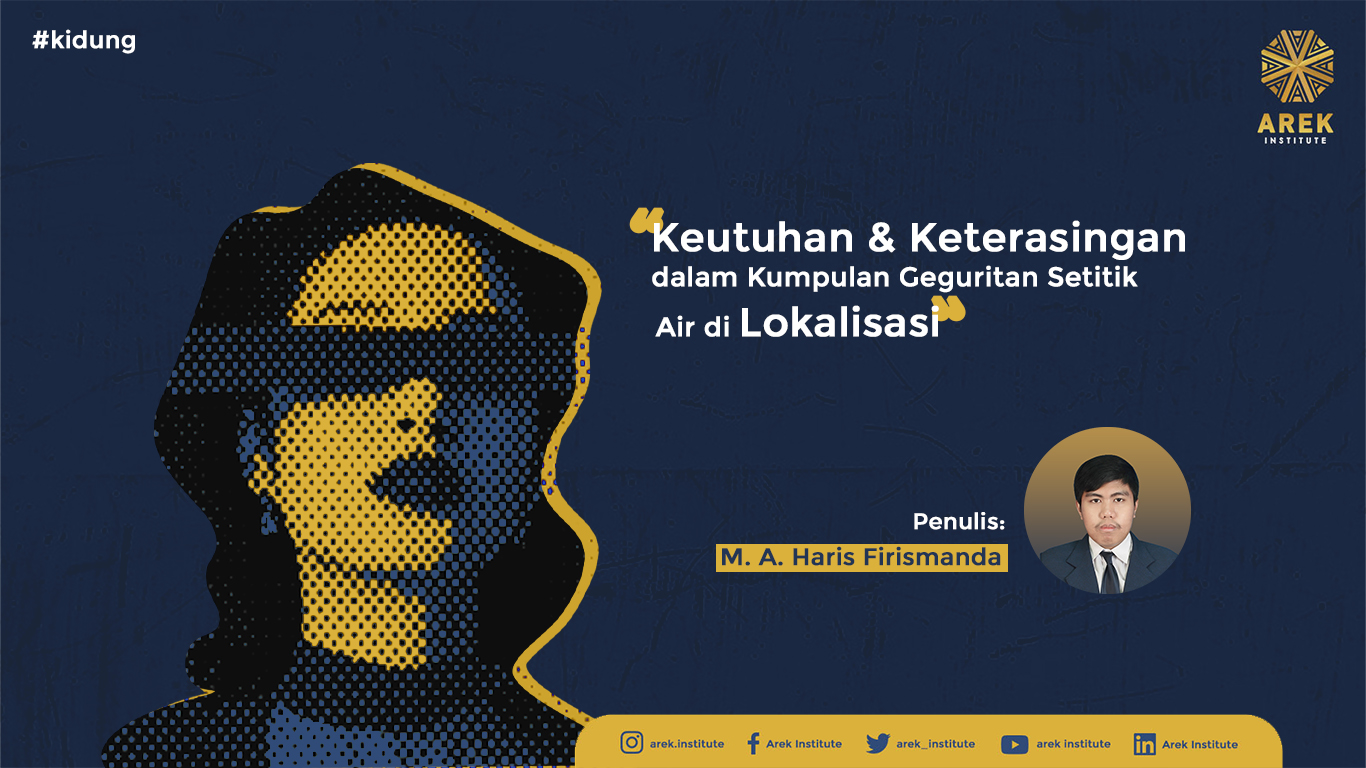
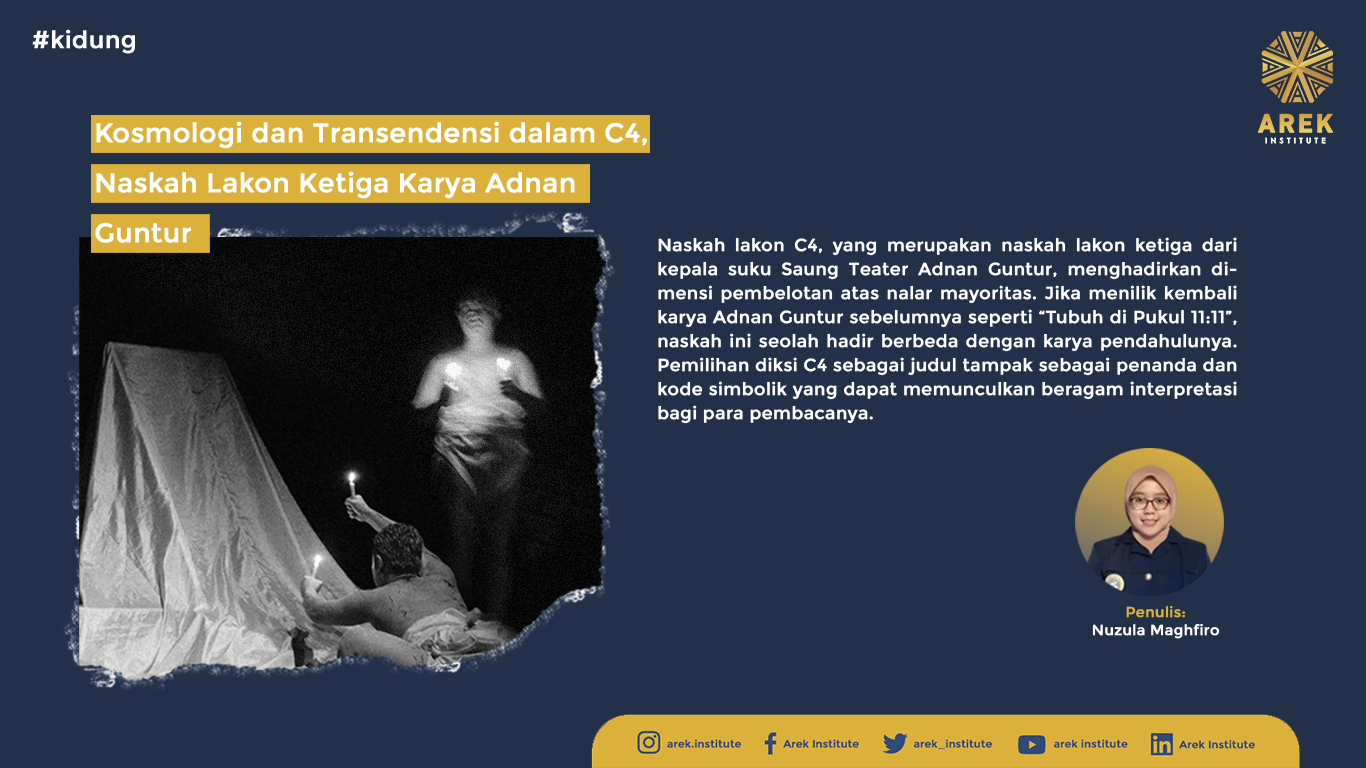
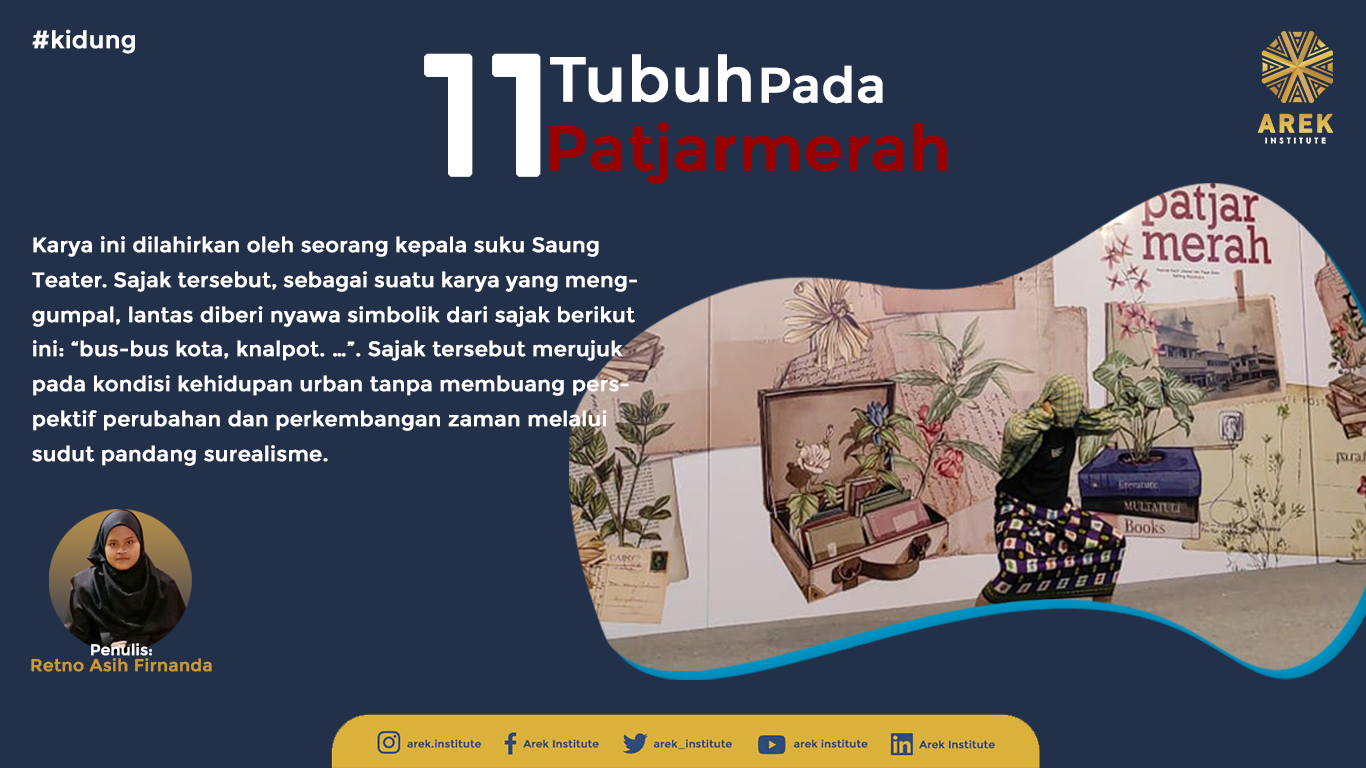
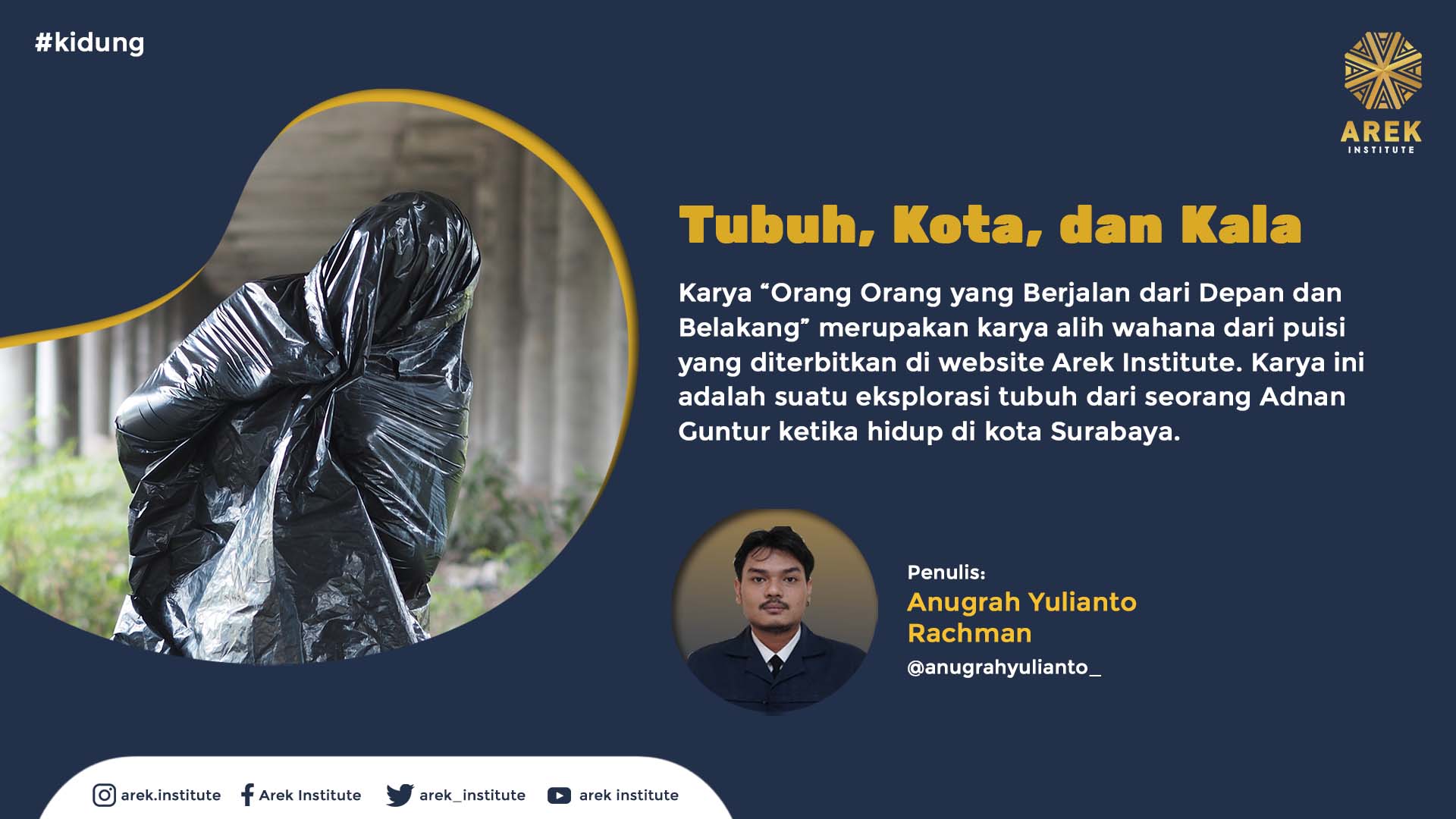
0 Comments